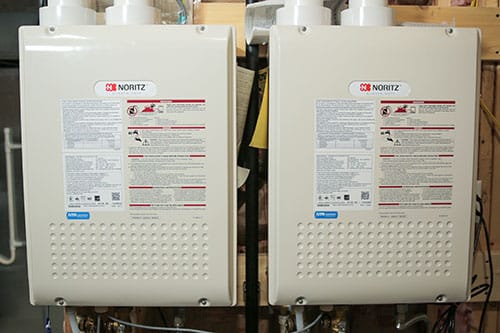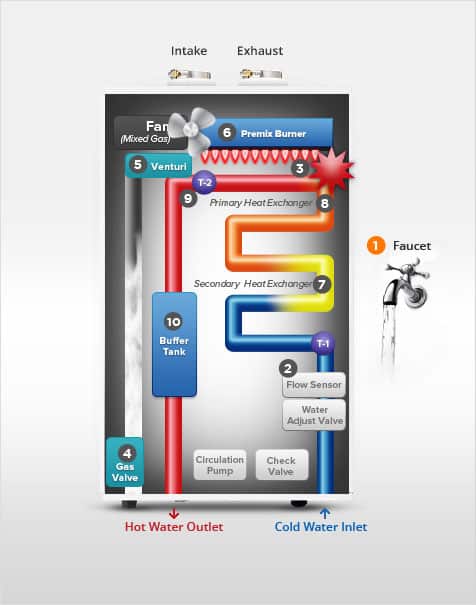Propane Tankless Water Heaters

Tankless water heaters provide hot water on demand. Take a look at how tankless water heaters work and see how you will benefit.
Why are propane tankless water heaters making such a big splash in the residential market? Let’s count the ways.
- Savings
With no tank of water to keep warm, tankless water heaters are much more energy efficient than storage tank water heaters. - Endless hot water on demand
Tankless units provide a virtually unlimited supply of hot water on demand. - More space
Since a tankless water heater can be mounted on a wall, it can free up valuable floor space. - Longevity
Tankless heaters are extremely durable. In fact, you can expect a tankless water heater to last 20 years or more—twice as long as a typical storage-tank water heater.
One of the secrets to the effectiveness of a tankless water heater is the ultra-high efficiency of propane, which eliminates the need to keep your water heated in a bulky storage tank.
Just turn on a hot water faucet and a flow sensor activates a propane gas burner to heat the water. The water heating will continue until you turn off the faucet. The gas burner will then shut off. It’s that simple.
How do Tankless Water Heaters Work?
- When a hot water tap is opened the unit detects the flow.
- The flow sensor activates to determine the amount of hot water needed.
- The igniter activates.
- The gas control valve opens to provide the supply amount of gas.
- The fan and venturi activate to provide the correct amount of gas and fuel.
- The premix burner ignites providing a flame to heat the water.
- Cold water is preheated in the secondary heat exchanger.
- Preheated water passes from the secondary to the primary heat exchanger.
- The unit determines the outgoing set temperature and adjusts the flame to heat the water.
- Heated water moves to the buffer tank.
- Desired hot water amount is delivered to the faucet.

Convert to Propane
If you’re thinking about expanding your use of propane, converting to propane for new appliances or switching to propane as your primary energy source, please contact your local propane company to learn more about your options.